第44章
It has been stated sometimes, though more often implicitly than in any direct or logical form, (this statement being one it is not easy to make definitely without its reducing itself to nullity!) that woman should seek no fields of labour in the new world of social conditions that is arising about us, as she has still her function as child-bearer: a labour which, by her own showing, is arduous and dangerous, though she may love it as a soldier loves his battlefield; and that woman should perform her sex functions only, allowing man or the state to support her, even when she is only potentially a child-bearer and bears no children.(Such a scheme, as has before been stated, was actually put forward by a literary man in England some years ago: but he had the sense to state that it should apply only to women of the upper classes, the mass of labouring women, who form the vast bulk of the English women of the present day, being left to their ill-paid drudgery and their child-bearing as well!
There is some difficulty in replying to a theorist so wholly delusive.Not only is he to be met by all the arguments against parasitism of class or race; but, at the present day, when probably much more than half the world's most laborious and ill-paid labour is still performed by women, from tea pickers and cocoa tenders in India and the islands, to the washerwomen, cooks, and drudging labouring men's wives, who in addition to the sternest and most unending toil, throw in their child-bearing as a little addition; and when, in some civilised countries women exceed the males in numbers by one million, so that there would still be one million females for whom there was no legitimate sexual outlet, though each male in the nation supported a female, it is somewhat difficult to reply with gravity to the assertion, "Let Woman be content to be the 'Divine Child-bearer,' and ask no more."Were it worth replying gravely to so idle a theorist, we might answer:--Through all the ages of the past, when, with heavy womb and hard labour-worn hands, we physically toiled beside man, bearing up by the labour of our bodies the world about us, it was never suggested to us, "You, the child-bearers of the race, have in that one function a labour that equals all others combined; therefore, toil no more in other directions, we pray of you; neither plant, nor build, nor bend over the grindstone; nor far into the night, while we sleep, sit weaving the clothing we and our children are to wear! Leave it to us, to plant, to reap, to weave, to work, to toil for you, O sacred child-bearer! Work no more; every man of the race will work for you!" This cry in all the grim ages of our past toil we never heard.
And today, when the lofty theorist, who tonight stands before the drawing-room fire in spotless shirtfront and perfectly fitting clothes, and declaims upon the amplitude of woman's work in life as child-bearer, and the mighty value of that labour which exceeds all other, making it unnecessary for her to share man's grosser and lower toils: is it certain he always in practical life remembers his theory? When waking tomorrow morning, he finds that the elderly house drudge, who rises at dawn while he yet sleeps to make his tea and clean his boots, has brought his tea late, and polished his boots ill; may he not even sharply condemn her, and assure her she will have to leave unless she works harder and rises earlier? Does he exclaim to her, "Divine child-bearer! Potential mother of the race!
Why should you clean my boots or bring up my tea, while I lie warm in bed?